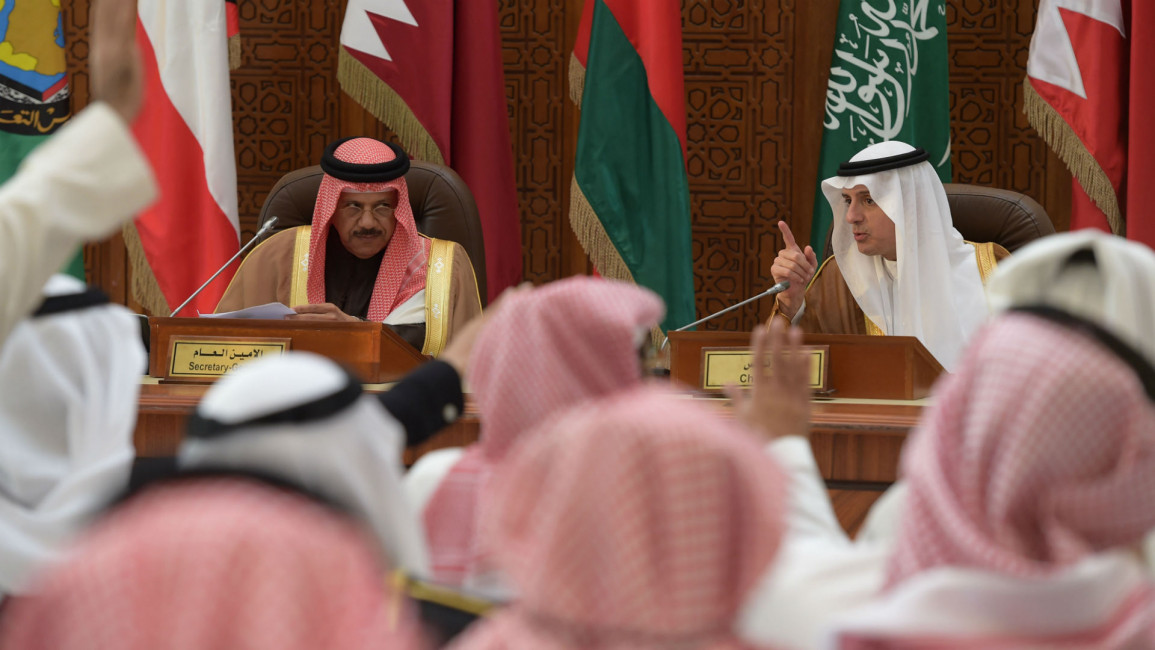GCC: Aden-based Southern Transitional Council 'doomed to fail'
The formation of the Aden-based 'Southern Transitional Council' is a negative step in the ongoing Yemen conflict, Gulf leaders have declared, nearly a week after it was announced by the dismissed governor of the temporary capital.
"This is a negative development in the course of the Yemeni situation," Kuwaiti Deputy Foreign Minister Khalid al-Jarallah said on Monday. "The Gulf Cooperation Council (GCC) countries have rejected this development. It is doomed and all indications run contrary to this declaration and path."
However, Kuwait is "ready to host the Yemeni parties, if it found a final formula to end the crisis there," Jarallah told reporters.
The Kuwaiti official noted "the commitment to address the Yemeni situation, especially considering that Kuwait has previously hosted peace consultations over a period of three months."
Last Thursday, the UAE-backed former governor of the southern city of Aden, Aidaroos al-Zubaidi, announced the formation of the "Southern Transitional Council", a matter of weeks after he was controversially dismissed by President Abedrabbo Mansour Hadi earlier this month.
But the announcement was rejected by local and regional entities, including the Saudi-backed Yemeni President Abedrabbo Mansour Hadi.
On Friday the Gulf Cooperation Council denounced the council, stating: "We support the United Nations efforts to reach a peaceful solution to the Yemeni crisis according to the Gulf initiative, its executive mechanism, the outcomes of the national dialogue and Security Council resolution 2216," according to a statement published by the Saudi news agency, SPA.
The Secretary-General of the Council, Abdul Latif Al-Zayani, said that the GCC States call on all the Yemeni people at this critical stage in the country’s history to reject the calls for division and separation.
Meanwhile, the Arab League on Saturday said it was "disturbed" by recent developments in Yemen following the declaration of an independent transitional political council to govern the south.
 |
The prospect of a new secession could complicate the war waged by the Saudi-led coalition against the Houthi rebels, who remain in control of the capital Sana'a and swathes of north and west Yemen. |  |
In a statement, Arab League Secretary General Ahmed Abul-Gheit expressed concern that the development could prolong conflict in the war-torn country, calling on all Yemenis to "pursue solidarity and unity in this hard moment to spare the country the risks of division."
Despite Yemen's unification in 1990, secessionists in the south have continued to feel marginalised by power brokers in Sana'a, repeatedly calling for independence from the north.
Although Hadi hails from the south himself, he served as vice president for 18 years under former President Saleh and is thus seen by some southern factions as a product of the international community and a puppet in the hands of the Saudis.
The prospect of a new secession could complicate the war waged by the Saudi-led coalition against the Houthi rebels, who remain in control of the capital Sana'a and swathes of north and west Yemen.
The development could lead to the existence of three entities claiming legitimacy over Yemen - Hadi's in Riyadh, the Houthi-Saleh alliance in Sana'a, in addition to the newly formed council claiming to represent the south, with ties to the UAE.
More than 10,000 people have been killed in Yemen's ongoing war, which has also pushed the country to the brink of famine.



